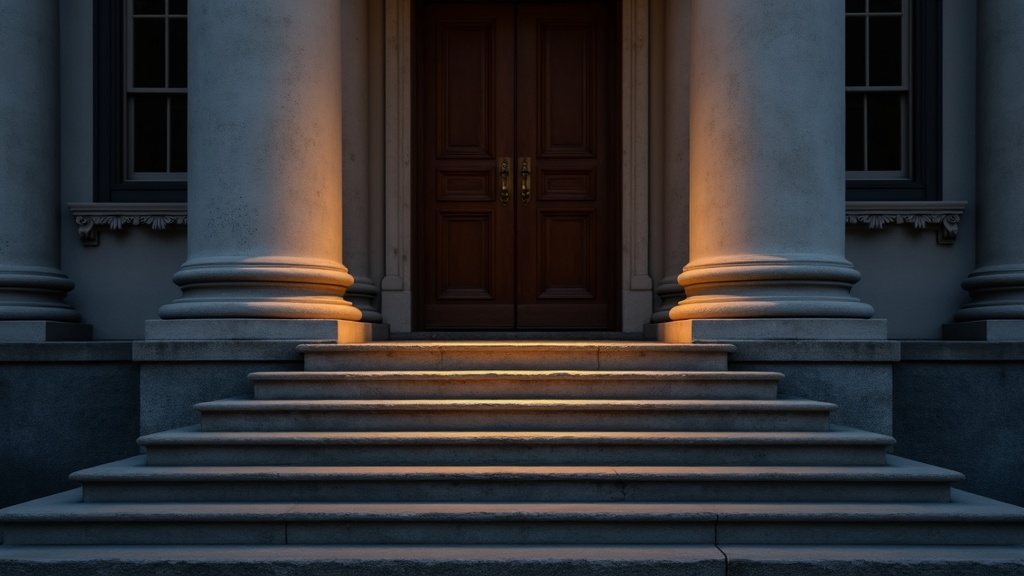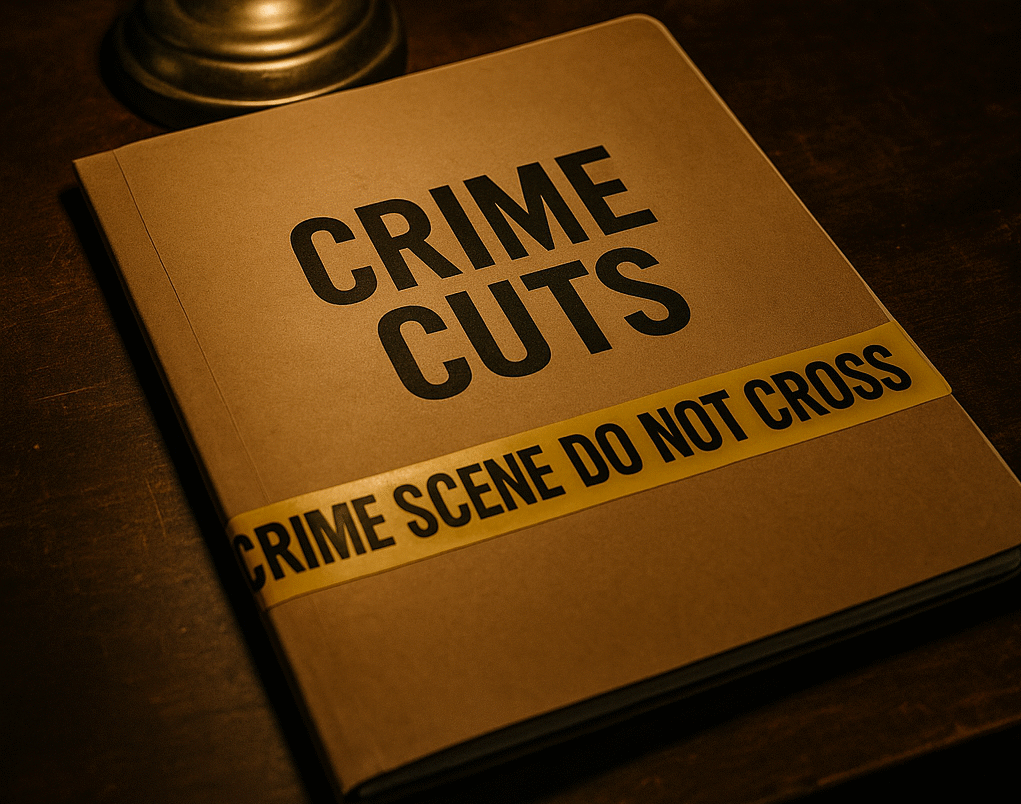If you ever find yourself being accused of a crime you didn’t commit, it can turn your world upside down in a matter of minutes. Despite what a lot of people think, just being innocent isn’t enough to keep you out of legal trouble. The criminal justice system relies on evidence, protocols, and sometimes flawed assumptions. Knowing how to respond from the start can make a huge difference between clearing your name and facing life-altering consequences.
Understanding what to do if you are wrongly accused is crucial during this challenging time.

Table of Contents
Why Responding Right Away Is So Important
Wrongful accusations aren’t just plot twists in TV dramas; they really happen. Studies show that wrongful convictions are more common than most folks realize. Even if you are completely innocent, legal systems are built around rules and evidence, not gut feelings. Small slip-ups early on, like sharing too much information or trusting that things will “sort themselves out,” can end up costing you in serious ways, such as losing your job, personal relationships, or in the worst case, your freedom.
Taking any accusation seriously from the jump is truly important. Nobody plans for this situation, but having a sense of what to do before you’re in the hot seat can help you stay cool when it counts. Knowing your rights, who to contact, and how to keep records can keep you a few steps ahead.
First Steps: Stay Calm but Don’t Downplay It
For more guidance, consider exploring resources on what to do if you are wrongly accused.
It’s natural to feel scared or even angry when someone accuses you of something you didn’t do. Still, the way you react in these first few hours or days can steer the direction of the whole case. Acting like it’s “no big deal” or thinking it will just blow over without you doing anything is risky. Assume you’re being watched and judged, even if you haven’t been formally charged. Avoid arguing with your accuser or venting online, no matter how tempting it feels. Staying as calm and clear-headed as possible sends the message that you’re not hiding anything, while panicking can sometimes raise red flags.
Your Right to Remain Silent: Use It
The urge to explain yourself or “clear things up” with the police feels totally normal. But speaking to law enforcement or investigators without a lawyer can backfire, sometimes in a big way. Casual chats, text messages, or phone calls (even ones you think are private) can be used against you later, sometimes taken wildly out of context. If police want to talk, just say: “I’d like to remain silent and speak with an attorney.” This isn’t an admission of guilt; it’s just protecting yourself. Innocent people have landed in trouble by saying too much, or answering questions in ways that got twisted around.
Finding the Right Criminal Defense Lawyer
Not all lawyers have the knowhow or experience to handle criminal cases, so finding someone who focuses on this area is smart. Don’t just call up any local attorney or ask a friend who handles real estate deals. Look for a criminal defense attorney who knows your region’s courts, police, and typical tactics prosecutors use. If you can’t afford private representation, make it clear to the judge or police that you’re requesting a public defender.
Once you have a lawyer on board, be 100% honest—even about details that seem trivial or embarrassing. A good defense starts with the whole story, not just the parts you feel good about sharing. Anything you tell your attorney is confidential, and communication works both ways. Come prepared with any documents, logs of your whereabouts, and names of potential witnesses. This groundwork sets your legal team up for success from the beginning.
Document Everything (Yes, Absolutely Everything)
Keeping records is super useful, especially if the story turns into a case of “your word versus theirs.” Start a log (paper or digital) as soon as you suspect you’re a target. Track details such as:
- Where you were at the time of the alleged crime
- Names and contact info for anyone you were with
- All messages, calls, or emails related to the incident
- Your interactions with police, the accuser, and any witnesses
- Any motives you suspect behind the accusation, like revenge or mistaken identity
Back up everything—screenshots, phone logs, even social media posts that place you somewhere else at the key time. These records can help prove your innocence or at least raise reasonable doubt. Organize these files with dates and notes. Share your documentation with your attorney so nothing essential slips through the cracks.
Gathering Witnesses and Alibi Proof
If you were somewhere entirely different when the alleged crime went down, solid evidence can clear things up fast. Try to collect:
- Photos or videos with dates and times
- GPS data from your phone, smartwatch, or car
- Receipts, keycard entries, or surveillance footage showing your location
- Friends, coworkers, or others who can vouch for your whereabouts
Show this information to your lawyer, not to police or investigators directly; your legal team will know the right way to use it. Keeping this evidence secure and accessible is key. If possible, list out all possible witnesses and let your attorney contact them to avoid any risk of claims of coaching or intimidation.
Protecting Your Privacy (On and Offline)
This is a good moment to stop sharing personal details about the case with anyone but your lawyer—not even close friends or family. Posting anything on social media can not only look bad but can also be taken out of context during a trial. Switch your profiles to private right away and don’t delete posts or messages, since that could get twisted into “destroying evidence.” Be aware that police sometimes monitor, screenshot, or even pose as friends online during investigations. Double check your privacy settings and limit who can see your activity. Think twice about anything you post—even seemingly innocent updates can be misconstrued.
Don’t Contact the Accuser
It might seem helpful to “work it out” directly, especially if you know the accuser personally. But even the friendliest message or attempt to apologize could be interpreted as harassment or intimidation. All communication should happen through your attorney—no exceptions. If you reach out on your own, that can turn a tricky situation into a criminal charge for tampering or trying to influence a witness. Always check with your lawyer before communicating with anyone involved in the case.
Working with Investigators (Through Your Lawyer Only)
If you’re asked to provide evidence like fingerprints, DNA samples, or your phone, never agree without your lawyer present. Sometimes, refusing might look suspicious, but cooperating in the wrong way can also hurt your defense. Your lawyer will determine what makes sense for your situation. Following their advice shows confidence in your innocence and helps keep you protected legally. Listening to your defense counsel’s instructions is critical at this stage.
Staying Prepared for the Long Haul
Fighting a wrongful accusation often drags on much longer than anyone expects. Some cases last months or even years, full of court dates and paperwork. Staying patient, but also staying on top of every development, helps keep your options open. Don’t jump at “quick fix” plea deals without understanding the long-term consequences, even for so-called minor offenses. Being employed, following your lawyer’s advice, and staying out of additional trouble helps show the court that you’re stable and reliable. Staying disciplined and proactive gives your defense the best possible footing.
Understanding the Accusation and Building a Defense Game Plan
You have a right to know exactly what you’re being accused of, and details matter. Ask your attorney to walk you through:
- The law or “statute” you’re being charged under
- Possible defenses, like mistaken identity, lack of evidence, or flat-out false accusation
- What evidence the prosecution claims to have
- A rough timeline for how your case might go
Request copies of any “discovery” materials, such as police reports, statements, or surveillance video. The more you know, the better you and your legal team can map out your defense. Staying informed creates less stress and makes smart decision-making easier.
Handling Publicity and the Media
If your case gets picked up in the news or online, things can spiral quickly. Bad press can be damaging even before you get your day in court. Your lawyer can sometimes ask for gag orders, suppression of certain evidence, or have the case moved to a different city to help get a fairer trial. Avoid giving statements or talking to reporters on your own; one wrong quote could haunt you. If contacted by media, refer them to your attorney.
Forensic Evidence: Pushing for a Review
If the case involves forensic evidence like DNA, fingerprints, or digital data, ask for independent testing whenever possible. Mistakes or mix-ups in labs happen more often than people think. Your lawyer can help bring in outside experts to check the methods and results, helping spot any problems or errors in the prosecution’s evidence. Accurate forensic review is central to many defenses, and trusting the process means double checking every piece of evidence presented.
If You Are Arrested or Held in Jail
Stay calm and respectful to avoid worse treatment. Never talk about your case with guards, cellmates, or anyone except your lawyer—those conversations aren’t private. Ask for a bail or bond hearing as soon as possible. Keep open communication with your attorney to stay up to date on the progress of your defense. Staying positive and levelheaded while in custody is difficult, but helps you avoid actions that could complicate your situation even more.
Clearing Your Name and Moving Forward
If and when you’re cleared, having a record of the accusation can still hurt your future opportunities. You might be able to have arrest records or court files expunged (erased) to help move on with your life. In cases of malicious prosecution or defamation, a civil lawsuit may be possible. Don’t overlook the emotional side; false accusations can leave lasting scars. Talking to a therapist or support group can be really helpful, and you get to decide if, when, and how you want to share your story with others. Personal healing is just as important as legal victory.
Common Questions About Wrongful Accusations
These questions come up a lot from people caught in situations they never saw coming:
What if I didn’t do anything wrong—shouldn’t the truth come out by itself?
The truth isn’t guaranteed to appear without solid evidence and a solid strategy. Innocence helps, but a strong legal defense protects your rights best.
Can I talk to my friends about the case?
It’s safer to keep details private. Even innocent comments can be twisted if repeated in court or online. Keep conversations about the case between you and your lawyer.
Is it legal for police to lie to me during questioning?
Yes, police in most places are allowed to use misleading tactics in interviews. That’s another reason to never answer questions without your attorney present.
Contact Us:
If you need to contact us for any reason, please feel free to do so here!
Final Takeaways for Protecting Yourself
Dealing with a wrongful accusation is about more than just proving your innocence. Every move you make, every word you say, and every choice matters. Staying silent until your lawyer is beside you, keeping paperwork organized, and never fighting alone increases your chances of clearing your name. Acting quickly, mapping out your moves, and staying cautious is your best shot at getting your life back on track. Build a strong team and keep looking forward—your future is worth the fight.
The Defender Services Program, administered by the U.S. federal judiciary, ensures that individuals facing criminal prosecution who cannot afford an attorney receive constitutionally-mandated legal representation and essential support under the Sixth Amendment and the Criminal Justice Act (CJA). With 82 federal defender organizations staffed by more than 3,700 lawyers, investigators, paralegals, and support personnel, the program serves 92 of the 94 federal judicial districts, supplemented by over 12,000 panel attorneys in jurisdictions without federal defender offices. For those wanting to understand how indigent defendants gain access to defense services in the federal system, Defender Services is an authoritative and well-established resource.






